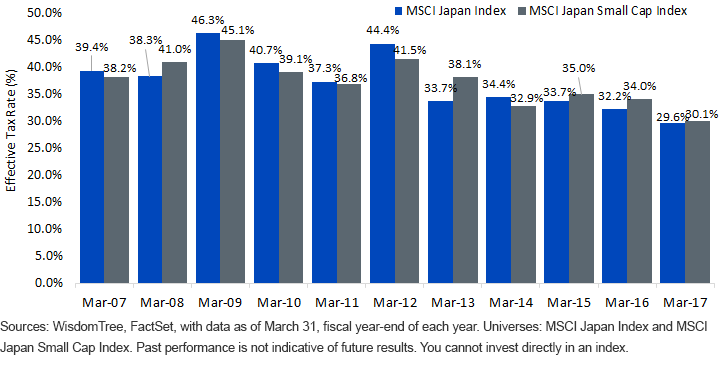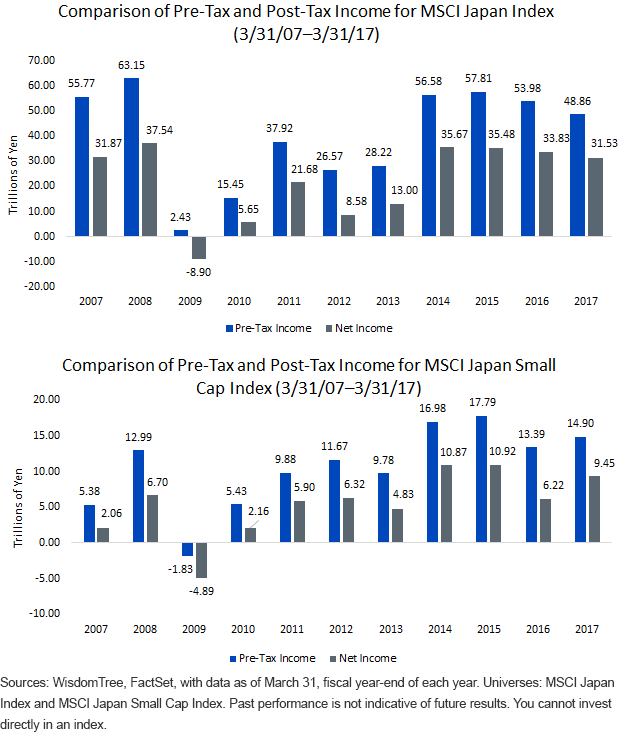
One of the biggest discussions in the U.S. market in 2017—particularly in the fourth quarter—concerned corporate taxes. While the earnings growth that comes from the cut in corporate tax rates to 21% will play out in 2018 and beyond, we can look at how Japanese earnings responded to the lowering of corporate tax rates that came with Abenomics.
U.S. equity markets have been reacting to the ebb and flow of different corporate tax-related announcements, but we believe that non-Japanese investors might not even realize the magnitude of the corporate tax cuts that Japan has already experienced.
Over the Last 10 Years, Effective Tax Rates in Japan Have Fallen Approximately 10%
Japan Effective Corporate Tax Rates (FY 2007–2017)

We must recall that Prime Minister Shinzo Abe’s first election victory occurred on December 16, 2012. For Japan’s fiscal year ended March 31, 2012, the effective tax rate for the MSCI Japan Index constituents was more than 40%. The current level—29.6%—represents a massive difference.
Have Profits Responded to Lower Taxes in Japan?
This is the true question for an equity investor, as lower taxes are nice, but the investment decision focuses on the profit response.
There Seems to Be an “Abenomics Response” to Both Pre-Tax and After-Tax Income

MSCI Japan Index (Large Caps): For the fiscal years that ended in 2014, 2015, 2016 and 2017, we can note that revenue (not shown) was only about 7.9% higher on average than for the fiscal years that ended in 2010, 2011, 2012 and 2013.1 However, pre-tax income was approximately 100% higher, on average, and after-tax income was approximately 179% higher. We certainly wouldn’t say that tax rates were the sole driver—things such as the yen exchange rate also mattered—but they were definitely a factor.
MSCI Japan Small Cap Index (Small Caps): For the fiscal years that ended in 2014, 2015, 2016 and 2017, we can note that revenue (not shown) was only about 26% higher, on average than in the prior four fiscal years.2 However, pre-tax income was almost 100% higher, and net income was, on average, more than 70% higher. The yen exchange rate would have been less important here, as these firms would engage in far less exporting than those within the MSCI Japan Index.



















